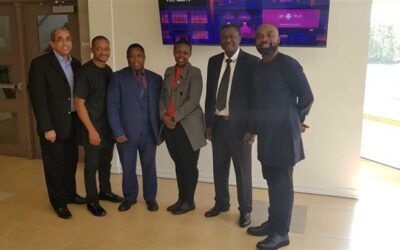Interview with Fatumo Farah, executive director of HIRDA, which stands for Himilo Relief and Development Association, general member of ADEPT.
A the end of 2020, HIRDA was granted 5000 € as a cofunding to implement a capacity building project in Somalia entitled « Enhancing HIRDA’s Diaspora impact » via the Seed funding Facility. Fatumo Farah went on a mission in Somalia this summer to implement the project and shares with ADEPT some of the results and lessons learnt.
- Could you briefly introduce your organisation HIRDA and explain in a few lines what was the purpose and main activities of your project ?
HIRDA is a diaspora organization based in Amsterdam, Established in 1998 by the Somali Diaspora in the Netherlands. HIRDA operates within a broad network of Somalis in the Horn of Africa with mission of improving the well being of Somali in the Horn of Africa through enhancing self-reliance and providing access to basic social services together with local and Diaspora communities. HIRDA’s objectives are: Creating equal educational opportunities for children; Promotion of gender equity and women empowerment; Providing relief services and basic health services for Internally displaces people and people in disaster areas; Increasing the engagement of Diaspora for the development of Somali regions.
- What was the purpose and main activities of your project ?
To capacitate the project staff of HIRDA Somalia, HIRDA local partners partners and diaspora volunteers for project management including project financial management and leadership skills to deliver a high quality service to their beneficiaries in a more effective, efficient, accountable, transparent and sustainable manner.
- What were the outcomes and what was the participants’ reaction ?
HIRDA staff, local partners and diaspora volunteers participated with training project management and leadership skills. Participant indicated that capacity building on project management and leadership skills was vital for the implementation of the projects and making impact through their work. They also indicated that the training increased their knowledge of project management and leadership skills and it will be benefit on their organizations. One of the participants said “ although I have followed previous project management (PM), I understand PM this time more than before and some linkage of processes became for me clearer” .
- According to you, what is the added value of your project in comparison with other training activities, and the added value of HIRDA as a diaspora organisation?
Trainings provided by us were tailor made and adjusted to the local context. Since we have been working in Somalia for more than 20 years with all challenges and risk at local level but also as diaspora organization. The participant can easily related to our experience of working in a fragile country. Further this training was given in local language that made it easy for the participant to understand and share their local experiences. Also it was easy for the participants to ask questions or comment when things were not clear. As result the participation of the trainees was high and they requested to continue this kinds of training to mobilize diaspora for such trainings.
- What role does capacity building play in the development of organisations, be it the diaspora in Europe or organisations in Africa ?
Diaspora organization and their counterparts were contributing to the development of home countries formal and informal, but to make a sustainable impact organizational capacities building of both parties are necessary. Therefore it is important to match the knowledge, skills and experiences of diaspora professionals to the capacity needs of the local actors as well as diaspora organizations. This can be reached through identification of the diaspora professionals who are willing to contribute and to link them to local partners.
- What challenges remain and what are the next projects planned by your organisation, in Europe or in Africa?
Although the participant’s knowledge on project management is improved, the Sustainability of the training program is a challenge, since the training duration was not long enough for participants to take a close look into all elements of projectmanagement and leadership skills. It is therefore important for HIRDA to continue the training activities by engaging more diaspora experts and to look other alternatives of knowledge transfer. For this reason HIRDA with other African diaspora organizations, all members of ADEPT are planning to initiate a diaspora Academy program where diaspora organisation, their local partners, community based organisations and local authorities have an access to knowledge of various topics related to diaspora and development.
- What is your wish for enhanced local development and strengthening of diaspora organisations?”
Mobilization and increased professional diaspora engagement to the local development through knowledge and skills transfer and increasing diaspora organizations capacity to ensure the sustainable impact of their programs at home. Further I hope that gender disparities will be also considered and taken into account in all capacity building programs and recruiting diaspora professionals.




